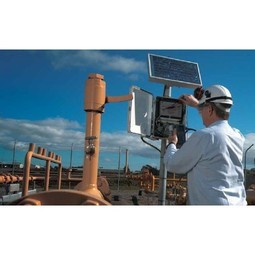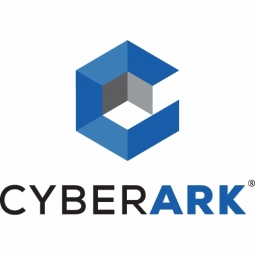公司规模
Large Corporate
地区
- America
国家
- Canada
产品
- CyberArk Identity
技术栈
- Single Sign-On (SSO)
- Multifactor Authentication (MFA)
- Mobile Device Management (MDM)
实施规模
- Enterprise-wide Deployment
影响指标
- Productivity Improvements
- Customer Satisfaction
- Digital Expertise
技术
- 网络安全和隐私 - 身份认证管理
- 网络安全和隐私 - 应用安全
适用行业
- 公用事业
适用功能
- 商业运营
- 现场服务
用例
- 网络安全
- 远程资产管理
- 远程控制
服务
- 系统集成
- 软件设计与工程服务
关于客户
London Hydro is a Local Distribution Company (LDC) that serves the city of London, Ontario, Canada. The utility delivers electricity to over 152,000 customers across the residential, institutional, commercial, and industrial sectors. As a key player in the energy distribution sector, London Hydro is responsible for ensuring a reliable and continuous supply of electricity to its diverse customer base. The company is committed to adopting new technologies that can enhance operational efficiency, reduce costs, and improve service delivery. With a focus on innovation and security, London Hydro aims to lead by example in the energy sector, demonstrating how modern technologies can be securely integrated into traditional utility operations.
挑战
Implement a cloud-based identity management solution as the basis for an entirely new cloud-based infrastructure. Include secure single sign-on (SSO) to support productivity-enhancing mobile apps. Do this in a way that reduces demand on IT. As with any Local Distribution Company (LDC), the top priority at London Hydro is literally keeping the lights on. LDCs must therefore act with extreme caution when it comes to introducing new technologies into the system that could negatively impact service to customers. But that caution must be balanced with the many benefits new technologies provide, such as the ability to significantly reduce costs, improve delivery systems and minimize waste. After months of careful evaluation of the advantages and the risks, Mike Flegel, Cyber Security Specialist at London Hydro, was tasked with finding a single sign-on platform that would support the company’s move to a cloud based infrastructure. Historically, security at LDCs has been a matter of simply keeping office and field networks physically separate, and requiring multiple passwords to access individual resources. But times have changed — complete separation can be too restrictive and users juggling multiple passwords can end up being security risks themselves. London Hydro needed to implement an identity management solution that would be the basis for an entirely new cloud-based infrastructure consisting of everything from traditional ERP datacenter applications like SAP and JDE to new, mobile apps for the field. At the same time, it was important to reduce the IT workload by minimizing password reset requests, and simplifying the process of adding or removing employee access and incorporating new apps into the environment.
解决方案
After evaluating several vendors featured in the Gartner Magic Quadrant for IDaaS, London Hydro chose CyberArk Identity because it offered the best method for applying consistent access control policies, and included MFA for an even more secure environment. London Hydro was looking for an identity management solution that provided consistent application of access control policies, and single sign-on to ensure usability and rapid adoption by employees. After evaluating several vendors featured in the Gartner Magic Quadrant for IDaaS, Flegel selected CyberArk Identity because it met all the functionality requirements, including multifactor authentication (MFA) capabilities for an additional layer of security. To be effective, MFA must be easy for users so that it increases rather than stifles productivity. “Getting employees out in the field to remember multiple passwords is a huge challenge,” Flegel says. “With SSO, they can simply click on an icon to gain access to whatever resources they need. And with MFA, we can selectively add an additional layer of security to protect more sensitive applications. By providing both SSO and MFA, CyberArk Identity solves many of our most challenging issues.” According to Flegel, 80% of the business case made for the CyberArk Identity solution revolved around security. “A few years ago, cybersecurity wasn’t even a topic on the London Hydro Board of Directors’ agenda. Now it’s a primary focus. With CyberArk Identity, we’ve been able to respond to our executives’ concerns — we no longer have to worry about password errors, strength, expiration, or even complaints about having too many of them. All of that makes us so much more secure.”
运营影响
数量效益

Case Study missing?
Start adding your own!
Register with your work email and create a new case study profile for your business.
相关案例.

Case Study
IoT Solutions for Smart City | Internet of Things Case Study
There were several challenges faced: It is challenging to build an appliance that can withstand a wide range of voltage fluctuations from as low at 90v to as high as 320v. Since the device would be installed in remote locations, its resilience was of paramount importance. The device would have to deal with poor network coverage and have the ability to store and re-transmit data if networks were not available, which is often the case in rural India. The device could store up to 30 days of data.

Case Study
Automation of the Oguz-Gabala-Baku water pipeline, Azerbaijan
The Oguz-Gabala-Baku water pipeline project dates back to plans from the 1970’s. Baku’s growth was historically driven by the booming oil industry and required the import of drinking water from outside of the city. Before the construction of the pipeline, some 60 percent of the city’s households received water for only a few hours daily. After completion of the project, 75 percent of the two million Baku residents are now served around the clock with potable water, based on World Health Organization (WHO) standards. The 262-kilometer pipeline requires no pumping station, but uses the altitude differences between the Caucasian mountains and the capital to supply 432,000 m³/d to the Ceyranbatan water reservoir. To the people of Baku, the pipeline is “the most important project not only in 2010, but of the last 20 years.”

Case Study
GPRS Mobile Network for Smart Metering
Around the world, the electricity supply industry is turning to ‘smart’ meters to lower costs, reduce emissions and improve the management of customer supplies. Smart meters collect detailed consumption information and using this feedback consumers can better understand their energy usage which in turn enables them to modify their consumption to save money and help to cut carbon emissions. A smart meter can be defined in many ways, but generally includes an element of two-way communication between the household meter and the utility provider to efficiently collect detailed energy usage data. Some implementations include consumer feedback beyond the energy bill to include online web data, SMS text messages or an information display in consumers’ premises. Providing a cost-effective, reliable communications mechanism is one of the most challenging aspects of a smart meter implementation. In New Zealand, the utilities have embraced smart metering and designed cost effective ways for it to be implemented. The New Zealand government has encouraged such a move to smart metering by ensuring the energy legislation is consistent with the delivery of benefits to the consumer while allowing innovation in this area. On the ground, AMS is a leader in the deployment of smart metering and associated services. Several of New Zealand’s energy retailers were looking for smart metering services for their residential and small business customers which will eventually account for over 500,000 meters when the multi-year national deployment program is concluded. To respond to these requirements, AMS needed to put together a solution that included data communications between each meter and the central data collection point and the solution proposed by Vodafone satisfied that requirement.

Case Study
NB-IoT connected smart meters to improve gas metering in Shenzhen
Shenzhen Gas has a large fleet of existing gas meters, which are installed in a variety of hard to reach locations, such as indoors and underground, meaning that existing communications networks have struggled to maintain connectivity with all meters. The meter success rate is low, data transmissions are so far unstable and power consumption is too high. Against this background, Shenzhen Gas, China Telecom, Huawei, and Goldcard have jointly trialed NB-IoT gas meters to try and solve some of the challenges that the industry faces with today’s smart gas meters.

Case Study
British Gas Modernizes its Operations with Innovative Smart Metering Deployment
The UK government has mandated that smart meters are rolled out as standard across Great Britain by end of 2020, and this roll-out is estimated to create £14 billion in net benefits to the UK in consumer energy savings and lower energy generation demand, according to the Oxford Economics report, “The Value of Smart Metering to Great Britain.” While smart-metering systems have been deployed in many countries, the roll-out in Great Britain is unique because it is led by energy retailers, who have responsibility for the Electricity and Gas meters. The decision to have a retailer-led roll out was made by DECC (Department of Energy and Climate Change) to improve customer experience and drive consumer benefits. It has also led to some unique system-level requirements to support the unique local regulatory model.

Case Study
OneWireless Enabled Performance Guarantee Test
Tata Power's power generation equipment OEMs (M/s BHEL) is required to provide all of the instrumentation and measurement devices for conducting performance guarantee and performance evaluation tests. M/s BHEL faced a number of specific challenges in conducting PG tests: employing high-accuracy digital communications for instrumentation, shortening setup and dismantling time, reducing hardware required, making portable instrument setup, avoiding temporary cabling work and the material waste costs







